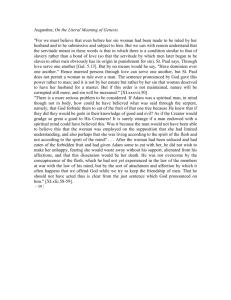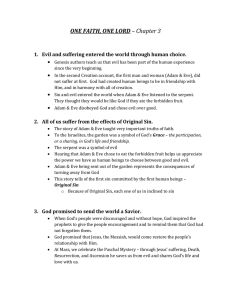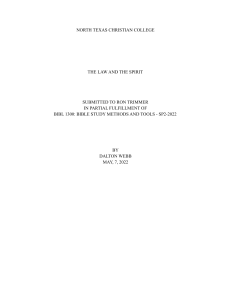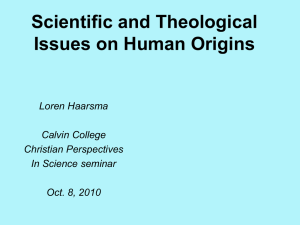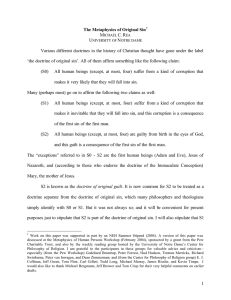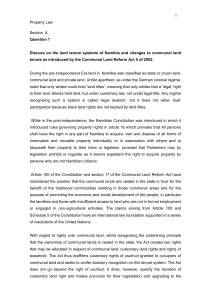On the Literal Meaning of Genesis.
advertisement
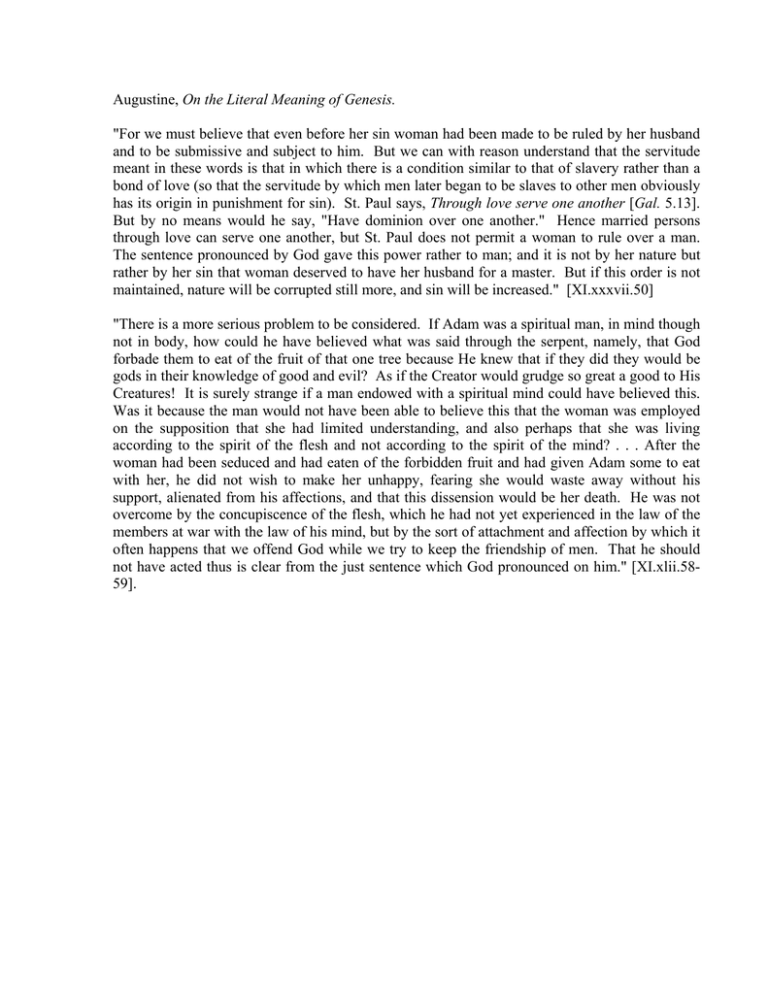
Augustine, On the Literal Meaning of Genesis. "For we must believe that even before her sin woman had been made to be ruled by her husband and to be submissive and subject to him. But we can with reason understand that the servitude meant in these words is that in which there is a condition similar to that of slavery rather than a bond of love (so that the servitude by which men later began to be slaves to other men obviously has its origin in punishment for sin). St. Paul says, Through love serve one another [Gal. 5.13]. But by no means would he say, "Have dominion over one another." Hence married persons through love can serve one another, but St. Paul does not permit a woman to rule over a man. The sentence pronounced by God gave this power rather to man; and it is not by her nature but rather by her sin that woman deserved to have her husband for a master. But if this order is not maintained, nature will be corrupted still more, and sin will be increased." [XI.xxxvii.50] "There is a more serious problem to be considered. If Adam was a spiritual man, in mind though not in body, how could he have believed what was said through the serpent, namely, that God forbade them to eat of the fruit of that one tree because He knew that if they did they would be gods in their knowledge of good and evil? As if the Creator would grudge so great a good to His Creatures! It is surely strange if a man endowed with a spiritual mind could have believed this. Was it because the man would not have been able to believe this that the woman was employed on the supposition that she had limited understanding, and also perhaps that she was living according to the spirit of the flesh and not according to the spirit of the mind? . . . After the woman had been seduced and had eaten of the forbidden fruit and had given Adam some to eat with her, he did not wish to make her unhappy, fearing she would waste away without his support, alienated from his affections, and that this dissension would be her death. He was not overcome by the concupiscence of the flesh, which he had not yet experienced in the law of the members at war with the law of his mind, but by the sort of attachment and affection by which it often happens that we offend God while we try to keep the friendship of men. That he should not have acted thus is clear from the just sentence which God pronounced on him." [XI.xlii.5859].
